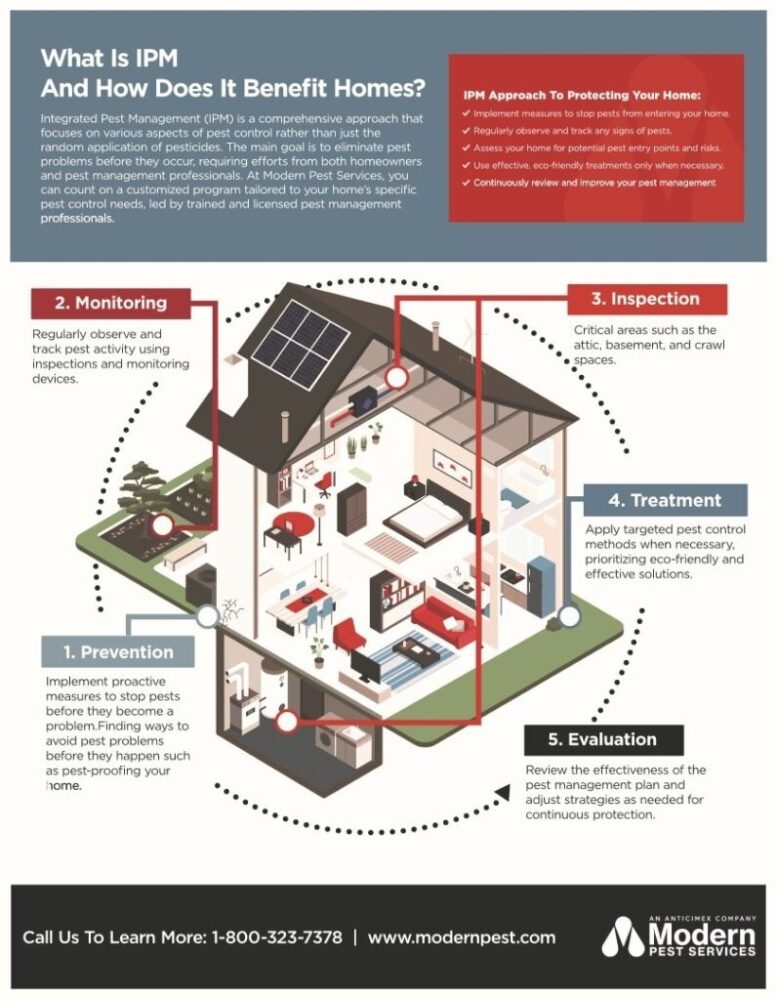
Pesticide resistance is a growing concern in pest control, affecting residential, commercial, and agricultural settings alike. When pests like rodents and insects develop immunity to chemicals that once controlled them effectively, it poses significant challenges for maintaining healthy, pest-free environments. At Modern Pest Services, we recognize the importance of addressing this issue head-on. Our commitment to Integrated Pest Management (IPM) allows us to combat pesticide resistance while providing effective, sustainable solutions for our clients.
Understanding Pesticide Resistance
Pesticide resistance occurs when a pest population no longer responds to a substance that previously controlled it. This resistance develops primarily through natural selection:
- Genetic Adaptation: Individuals with genetic traits that make them less susceptible to a pesticide survive exposure and reproduce, passing these traits to the next generation.
- Rapid Reproduction: Many pests, such as roaches, mice, and bedbugs, reproduce quickly and reach sexual maturity rapidly. This accelerates the spread of resistant genes within the population.
Over-reliance on chemical pesticides and improper application can exacerbate resistance:
- Overuse of Pesticides: Frequent and widespread use of the same pesticide can select for resistant individuals.
- Improper Dosage and Application: Using lower than recommended doses can allow some pests to survive and develop resistance.
The Integrated Pest Management (IPM) Solution
Integrated Pest Management is a holistic approach that combines multiple strategies to manage pest populations effectively and sustainably. Instead of relying solely on chemical treatments, IPM focuses on understanding pest behavior, biology, and ecology to prevent infestations before they start.

The Benefits of Our IPM Strategy
By adopting an IPM approach, we achieve several advantages:
- Reduced Chemical Usage: Minimizing pesticide applications lowers the chance of resistance and lessens environmental impact.
- Improved Efficacy: Combining multiple control methods increases the likelihood of successful pest management.
- Sustainable Results: Preventive measures lead to long-term solutions rather than temporary fixes.
- Enhanced Safety: Limiting chemical exposure protects the health of occupants, pets, and non-target organisms.
Why Pesticide Resistance Matters
Ignoring pesticide resistance can lead to:
- Increased Infestations: Resistant pests continue to thrive despite treatment efforts.
- Higher Costs: Repeated or escalated treatments become necessary, raising expenses.
- Environmental Harm: Overuse of chemicals can harm beneficial insects, wildlife, and ecosystems.
Our Commitment to a Healthier Environment
At Modern Pest Services, we are not just focused on eliminating pests—we are committed to doing so responsibly. By integrating IPM principles into our practices, we contribute to:
- Protecting Public Health: Effective pest control reduces the spread of disease and allergens.
- Preserving the Environment: Sustainable methods minimize ecological disruption.
- Supporting Biodiversity: Avoiding unnecessary chemical use helps protect beneficial species.
